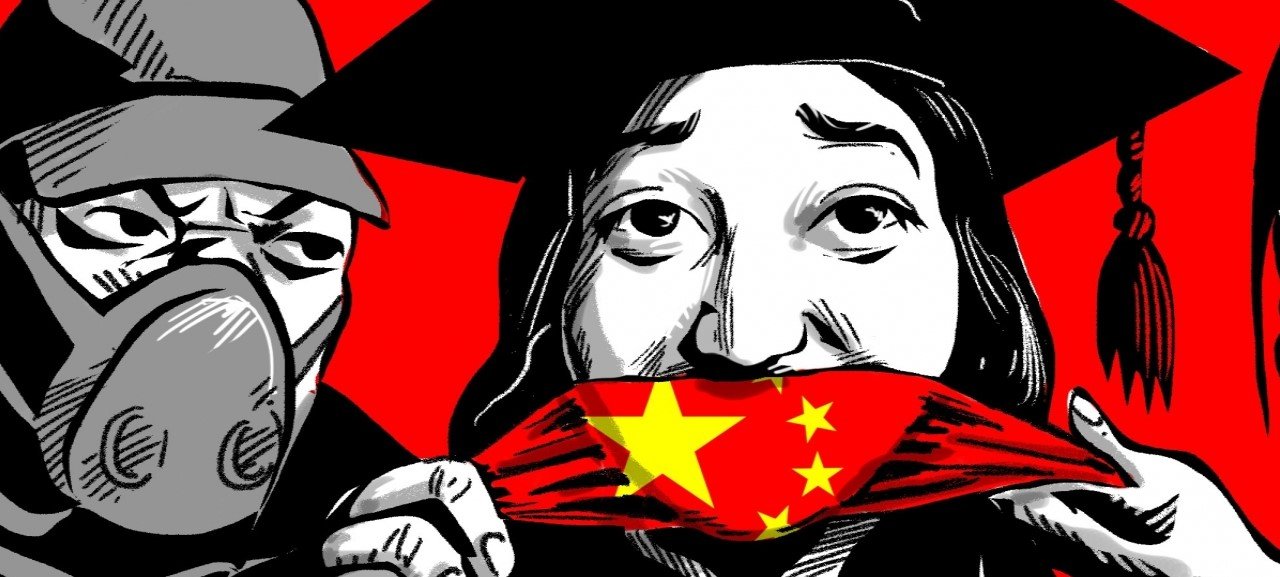

Jan
As explained through previous articles, a perspective backed by data from prestigious international organizations, China is severely lacking in the let’s say human rights department. Freedom of speech represents the most obvious example to that effect, so it would be downright juvenile to attempt an analysis of a seriously-asked “Does China have a freedom of speech problem?” question because the answer is literally staring us in the face.
Whether we are referring to the Great Firewall of China (about which we have written an article that can be accessed by clicking HERE), the so-called multi-party system which is a charade at best (an article dedicated to this topic can be found HERE), the severe political consequences associated with articulating an opinion that goes against the proverbial status quo or anything else from the mountain of evidence that exists with respect to freedom of speech barriers, it is crystal-clear to even the most superficial among observers that the idea of meaningful freedom of speech existing in China is nothing more than a joke.
Why should you as an investor care?
First and foremost, we need to make it clear right from the beginning that you shouldn’t care about the present-day ramifications of the freedom of speech issue. Instead, it is future developments pertaining to freedom of speech and especially the lack thereof which should represent a key piece of our endogenous threat analysis.
Up until this point, the average Chinese citizen has tolerated this lack of freedom of speech and events such as the Tiananmen Square ones are unfortunately merely outliers. Why? Simply because up until this point, the Chinese citizens in question had more “pressing” issues to deal with: putting food on the table, securing shelter for their families and so on.
As time passed and the many reforms which had been implemented in China started generating spectacular economic results, this subsistence-oriented status quo started being eroded. As more and more Chinese citizens started realizing that putting food on the table isn’t as difficult as it once was, they started understanding that it’s time to satisfy needs that rank higher on Maslow’s Pyramid. For example, knowing how difficult life was for them due to poor education, Chinese parents obviously wanted more for their children in this respect.
Once again, a tidal wave of change was beginning to grow, with effects that ended up being felt with the passing of time. A better-educated population was able to partake in higher value-added economic activities, which helped the economy of China as a whole in terms of sustainability (in light of how unsustainable relying exclusively on growth associate with being a “cheap labor” destination would have been) as well as the average citizen, with something that would have been considered ridiculous during the let’s say Mao Zedong days materializing: the emergence of a financially potent Chinese middle class.
As can be seen, one trend after another helped the Chinese economy grow and keep growing.
However, the very same trends gradually start eroding the political status quo. A Chinese farmer who can barely provide for his family will have other things on his mind than thinking about freedom of speech. The same principle is much less so valid for a highly-educated member of China’s emerging middle class. Such people have enough financial stability to afford thinking about “bigger picture” topics, the education required to do so effectively and tools at their disposal to gain access to information the Chinese authorities want to block (for example, as mentioned in the Great Firewall of China article, how easy it is for an educated Chinese citizen to circumvent the Great Firewall and gain access to Western media outlets).
Under such circumstances, might “critical mass” in terms of demanding human rights-related change in general and freedom of speech-related change in particular emerge?
Most definitely.
When will this happen?
We have no way of knowing.
As investors, we have the obvious responsibility of analyzing the assets we have exposure to from a wide range of angles. To figure out what (if anything) disruptive enough to alter the status quo might happen and plan accordingly. To think about both exogenous factors such as international pressure and endogenous ones such as pressure within China, from an increasingly educated population that may not be willing to tolerate a restrictive political status quo indefinitely.
As far as potential exogenous factors are concerned, we have covered many of them extensively though other articles. In terms of potential endogenous factors, freedom of speech-related ones most definitely deserve to be on top of your list. Again, this doesn’t mean one should expect changes overnight and the same way, there is a probability greater than zero that such changes simply won’t occur.
But the more likely outcome, in our view at least, revolves around the fact that the mega-trends that are taking place both economically and when it comes to variables such as education are conducive to an eventual “perfect storm” situation in terms of human rights, with freedom of speech representing a top concern. How this might affect your portfolio is ultimately for you and/or your organization to determine, with the free information found on ChinaFund.com being here to assist with just that. Of course, should you be interested in taking things to the next level, our team can help with a wide range of services dedicating to tackling this topic and many others (more details can be found by accessing the Consulting section of ChinaFund.com). To get in touch and let us know what you would like us to be of assistance with, simply visit the Contact section of our website and leave us a message.
